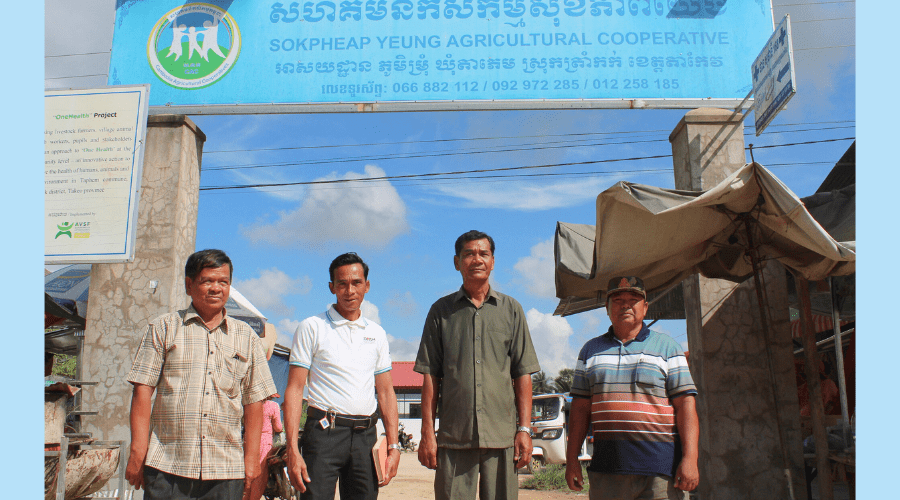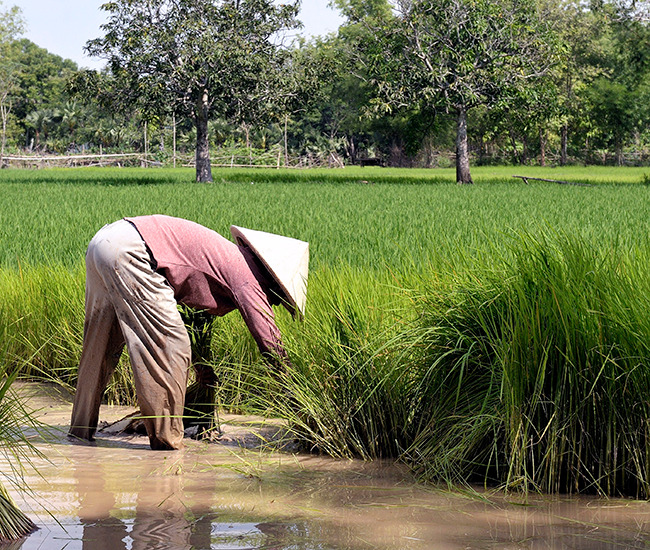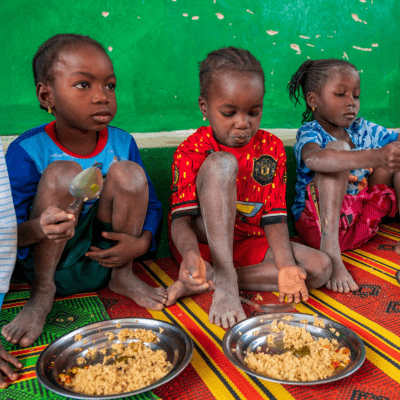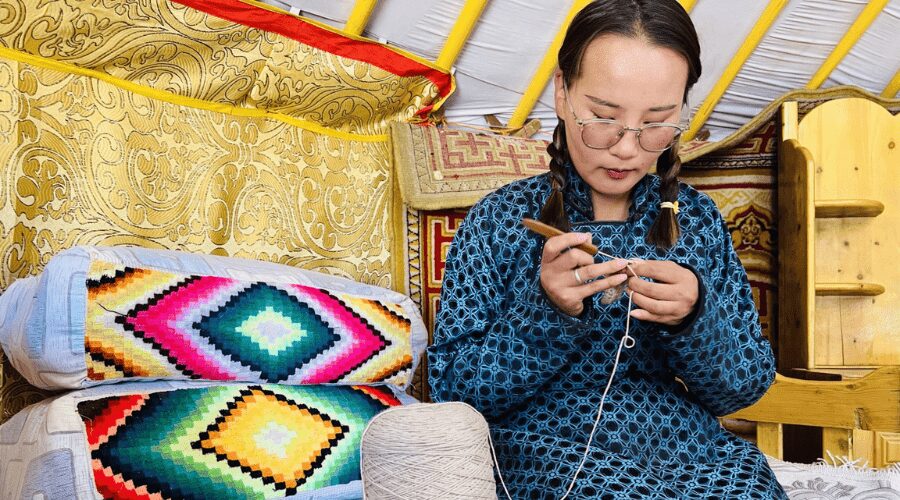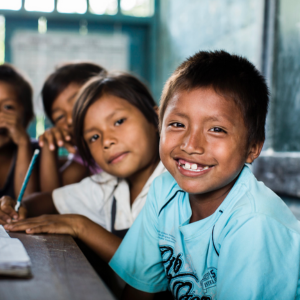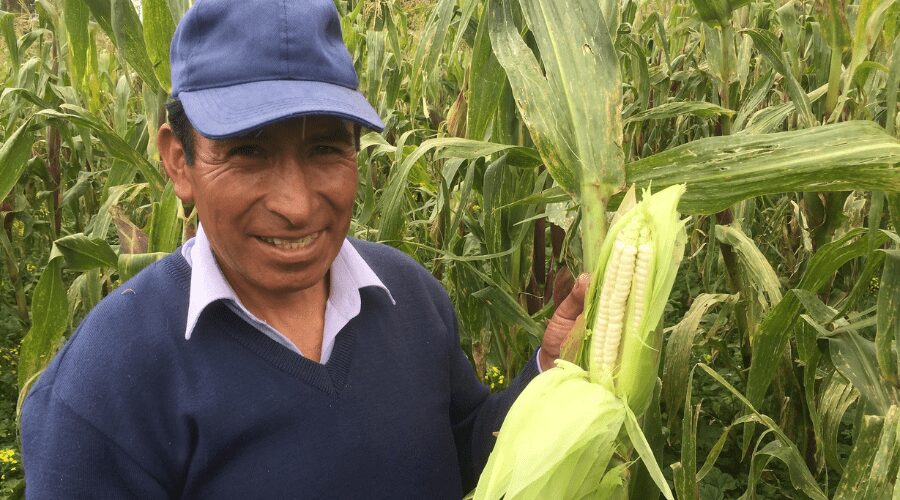After a particularly complicated and violent period in its history under the Khmer Rouge regime, Cambodia can boast of having halved its poverty rate between 2014 and 2022. Even if extreme poverty is still far from being eradicated today, this progress proves that it is not inevitable.
In the villages, after rice, poultry farming is one of the main food crops used to ensure family food security. As Manuelle Miller, Programme Manager at AVSF, explains, “poultry production was severely affected in the 2010s by the avian flu epidemic, which destabilized the economic and food security of families, and then again in 2020, like the rest of the economy, by the covid crisis.”
The success of CAHWs
For thousands of families, having healthy animals is vital. This is why AVSF has been working for almost 30 years to combat the emergence of animal diseases. One of the NGO’s emblematic actions in the country has been the training of more than 2,700 communities animal health workers (CAHWs). These workers make up for the lack of vets in the villages by offering local animal health services. To do this, they are trained in both technical veterinary skills (epidemiology, disease prevention and treatment, improving production) and marketing skills to promote their activities.
Given the success of the CAHWs, public authorities and other private entities have taken up the issue and replicated this approach. There are currently 12,000 animal health workers in Cambodia, whose status has been officially recognized by the authorities since 2011.
Improving everyday life of farmers
With small-scale poultry farming, meat and eggs not only enrich families’ diets by providing an important source of protein, but also generate additional income through sales at local markets.
On the farm she runs with her husband Mr Ouk Someth in Takeo province, Mrs Touch Teary is in charge of the chickens and the vegetable garden. The two activities complement each other: the leftovers from the vegetable garden are used to feed the chickens, and the manure obtained from the animal excrement is used to fertilise the soil naturally.
The couple, who were supported by the “One Health” project, faced a number of problems: heavy losses due to weather conditions, chickens blinded by incorrect use of a vaccine, insect bites and so on. In order to reduce the mortality rate among his flock of chickens, Mr Ouk Someth received two days’ training in basic animal care. If the need goes beyond his area of expertise, he calls on the village the CAHWs. The creation of a group on the Telegram messaging application between farmers in the region and the CAHWs also encourages the exchange of knowledge and solidarity.
Which results ?
The “One Health” project has improved the income and living conditions of chicken farmers in 8 villages. In two years, their income has more than doubled ! More than 10,000 chickens have been wormed and vaccinated against seasonal diseases. It is also estimated that 95% of the farmers have improved their practices in terms of hygiene, feeding and housing the chickens, and are now enjoying better yields.
This is a real success story for AVSF’s Cambodian teams, who have been working tirelessly for almost 30 years alongside the most vulnerable farming families to help them break out of the vicious circle of poverty and ensure their food security.
Portrait
Mr Bin Virak breeds chickens and pigs in the Takeo region of Cambodia. He also grows rice and vegetables for market and family consumption. In 1992, he joined the first group of Community Animal Health Workers trained by AVSF. Working two half-days a week for 6 months, he acquired technical skills in animal health and production.
Even today, local farmers still call him every day to look after their animals, enabling him to earn an extra $10 a day. He is considered to be the best CAHWs in the region ! He has also become the president of the Sokpheap Yeong cooperative, supported by AVSF since 2017 as part of the “One Health” project.
